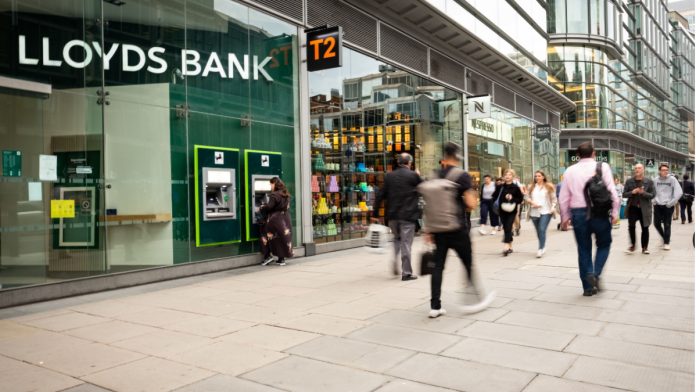Lloyds Bank has become the first UK bank to join the WaveBL platform, offering clients electronic Bills of Lading (eBLs) for faster and more sustainable trade transactions.
Through the collaboration, Lloyds’ clients can securely exchange fully digital, blockchain-based eBLs with other organisations on the WaveBL network, which spans 136 countries and includes four of the world’s largest container shipping carriers.
Bills of Lading are vital documents in global trade that are issued by carriers when goods are shipped, serving as receipts. Once payment is received, the buyer gets the Bill of Lading to claim the goods, facilitating the transfer of ownership from the seller to the buyer.
Rogier van Lammeren, Head of Trade and Working Capital Products at Lloyds Bank, said: “Paperless trade is the future, with tremendous benefits on offer in terms of economic growth, increased efficiency, reduced risk and environmental sustainability.
“Collaboration and innovation are two of the key factors that will drive and support greater adoption. This new partnership with WaveBL is an example of both in action.”
While most Bills of Lading currently exist in paper format, electronic versions offer numerous advantages, including speed, as eBLs can be transferred between parties within minutes, a significant improvement over the days typically required for paper versions.
Additionally, eBLs eliminate the risks associated with forgery, loss, and theft of paper documents and reduces the environmental impact by eliminating the need for paper products and physical document transfers.
Introduced in 2021, the WaveBL platform will help Lloyds on its mission to advance trade digitalisation, after becoming a signatory to the Future of International Trade (FIT) Alliance’s electronic Bills of Lading (eBLs) declaration in October 2023.
The FIT aims to raise awareness and accelerate adoption of a standards-based electronic bill of lading across all sectors of the shipping industry, with the goal of delivering 100% global uptake in eBLs by 2030.
“Our clients now have easy access to a global platform for eBLs to complement our existing suite of digital trade documentation solutions – enabling them to capitalise on opportunities quickly and securely, while reducing their impact on the environment,” said van Lammeren.
Ofer Ein Bar, VP Financial Institutions, WaveBL, commented: “Corporates are looking to prioritise digital trade solutions, and financial institutions have been looking at how they can meet this demand.
“Our partnership with Lloyds Bank, an industry leader in trade digitalisation, represents a strategic leap forward for banks to support corporates as they digitalise, while enhancing customer satisfaction.”
Amid this continued support for businesses through digitalisation, the bank reduced its own physical presence last month, closing its ‘mobile banking’ operation, which provides banking services to towns and villages via vans.



















